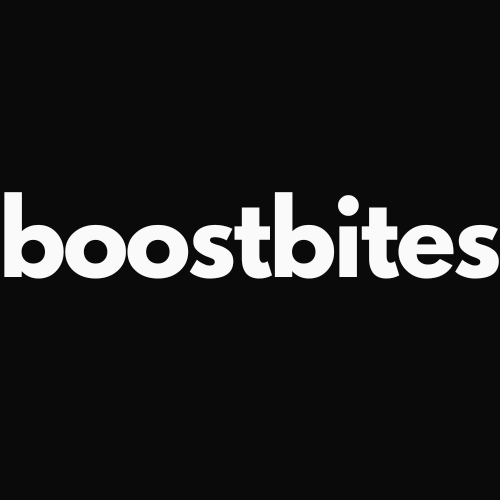Most people know creatine as the go-to supplement for strength and power. But a growing body of research shows that its benefits extend far beyond performance - especially when it comes to recovery. If you've ever asked, "Does creatine help with muscle recovery?", the answer is yes - and the science backs it.
In this article, we’ll break down how creatine supports muscle repair, reduces soreness, and improves your ability to recover between workouts. We’ll also explain how daily use - especially in clean, easy-to-take formats like BoostBites creatine gummies - helps optimize results over time.
How Creatine Works: The Recovery Connection
Creatine fuels your body’s ATP energy system - the rapid-access energy pathway your muscles use during high-intensity activity. It’s stored as phosphocreatine in your muscle cells.
After exercise, phosphocreatine stores are depleted and must be restored - that’s where supplementation comes in.
Benefits related to recovery:
- Faster ATP replenishment post-exercise
- Reduced exercise-induced muscle damage (EIMD)
- Better glycogen resynthesis
- Lower inflammation markers
Learn more: What Is Creatine?
Muscle Recovery: What It Actually Involves
Recovery isn’t just rest - it’s a complex repair cycle involving:
- Cellular hydration
- Protein synthesis
- Energy replenishment (ATP)
- Glycogen restoration
- Inflammation resolution
Creatine supports each of these directly or indirectly, which is why it’s increasingly recommended for recovery - not just output.
Related: Benefits of Creatine
What the Research Shows
- A 2018 study in the Journal of the International Society of Sports Nutrition found that creatine reduced muscle soreness and improved recovery markers after eccentric exercise.
- A 2015 trial showed that creatine supplementation reduced creatine kinase (CK) levels - a key marker of muscle damage.
- Several studies confirm enhanced recovery of peak force output within 24-48 hours post-training.
Summary:
Creatine helps muscles recover faster between sets, between workouts, and after periods of high-volume training.
People Also Ask: Creatine and Recovery FAQs
Does creatine help reduce soreness?
Yes. Studies show that creatine users experience less delayed onset muscle soreness (DOMS) and recover strength faster.
Should I take creatine after a workout?
Yes - but timing isn’t critical. What matters is daily intake to maintain saturation. You can take it pre-, post-, or with any meal.
Can creatine help me recover during a cutting phase?
Absolutely. Creatine helps retain muscle mass and training output even in a calorie deficit - critical for preserving lean tissue.
Does creatine help with tendon or joint recovery?
Not directly - creatine affects muscle tissue and cellular energy systems, not connective tissue healing. But by reducing fatigue and soreness, it can support overall recovery.
Explore: Creatine on Rest Days
Why Creatine is Especially Helpful During High-Volume Training
When you’re pushing volume - hypertrophy blocks, CrossFit, HIIT - creatine helps:
- Reduce intra-workout fatigue
- Enhance inter-set recovery
- Improve repeat performance during training blocks
This leads to:
- More reps completed
- Better form and control under fatigue
- Faster strength progress due to higher overall training density
Recovery Stack: What to Pair With Creatine
To maximize recovery, creatine works well with:
- Protein powder - for muscle repair
- Carbs - for glycogen resynthesis
- Electrolytes - for hydration
- Sleep optimization - for hormone support and inflammation repair
Creatine amplifies these other efforts by supporting energy metabolism at the cellular level.
See: Creatine vs Protein Powder
Why Format Matters: Powder vs. Gummies
When you’re sore, tired, or on the move, powders can be inconvenient:
- You skip doses
- You forget after workouts
- You don't want to mix and clean
BoostBites creatine gummies make it easier to recover consistently:
- Pre-dosed with 4.5g of creatine monohydrate
- Sugar-free, vegan, and naturally flavored
- Zero mixing, no bloating, just daily compliance
Explore our creatine supplement collection
Who Benefits Most From Creatine as a Recovery Aid?
- Lifters in high-volume hypertrophy blocks
- CrossFit athletes doing repeat sprint and power efforts
- Women seeking to minimize fatigue and soreness during training cycles
- Older adults recovering slower due to age-related ATP decline
- Vegans/vegetarians with lower dietary creatine baseline
Learn more: Are Creatine Gummies Safe for Long-Term Use?
Final Thoughts: Creatine Is a Recovery Supplement - Not Just a Strength One
Creatine doesn’t just help you lift more - it helps you recover better.
That means:
- Less soreness
- Faster rebound between workouts
- Greater training consistency over time
And consistency is what drives real gains.
With BoostBites creatine gummies, recovery becomes effortless:
- No scoops
- No bloating
- Just science-backed support for strength and repair
Try BoostBites Creatine Gummies - and give your body what it needs to bounce back stronger.




